Two boys no older than ten wander the dusty roadside, semi-automatic rifles slung casually across their backs. Hearing the vehicle, they meander off-road into the thick verdant forest that’s lush but eerily silent. I ask my driver where all the animals are and he responds drily, “These Nagas eat everything.”
Characterised by headhunters and a penchant for dining on the exotic and unusual, Nagaland is considered by many to be the last frontier of India. But it’s no stranger to foreigners; American Baptist missionaries arrived in the 19th century and the Allied Forces defeated the Japanese here in WWII. However Nagaland is now rarely explored by outsiders thanks to its remote position wedged against the Myanmar border.
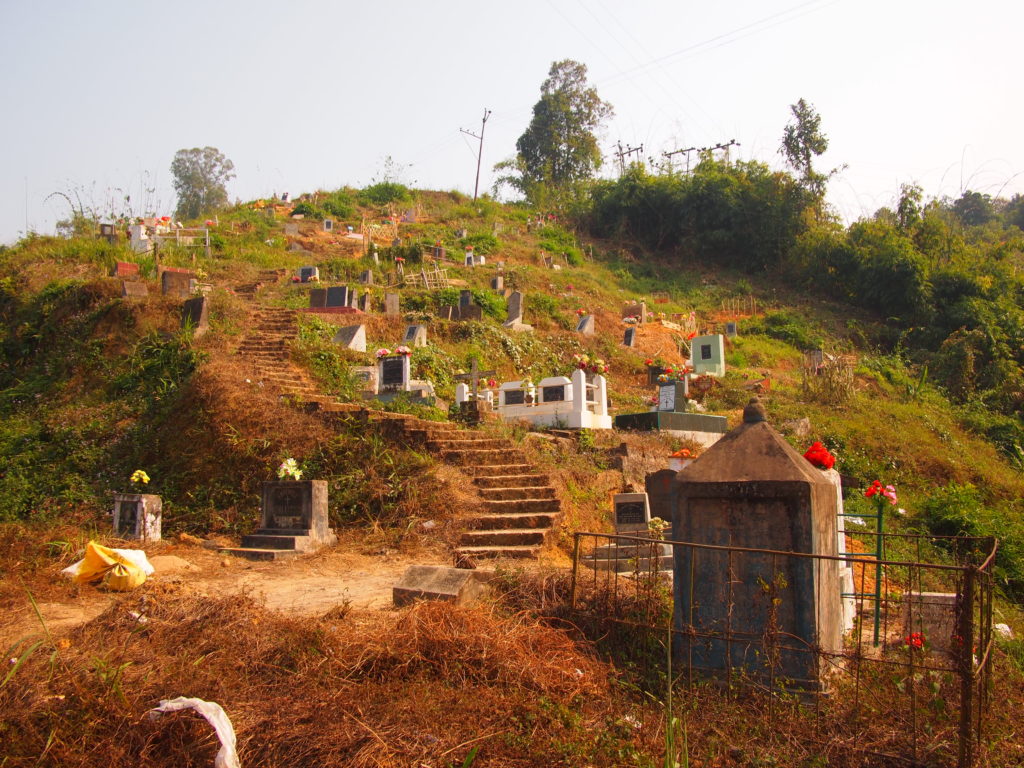
Armed with expectations of seeing savage tribes, we set out from the surprisingly modern capital of Kohima to experience traditional life in the village of Dzuleke. Although only 40 kilometres away, we are dismayed to see the newly tarred roads of Kohima quickly give way to rocks and dust, making the journey in our tiny vehicle both slow and treacherous. With an inaudible yet wild jungle to one side, the desolate road before us and no human in sight, we are aware of just how secluded we are.
Two hours of twisting and turning later we are riddled with motion sickness and breathe a sigh of relief when a tiny sign marked Dzuleke appears before us. Nestled on the highland, only 35 families live in this quaint village. To one side rice paddies glimmer under the glare of the sun, and to the other brightly painted houses dot the stark landscape.
A smiling face appears to greet us. With warm chocolate-brown eyes offset by high cheekbones, our host Kevi immediately makes us feel at ease. Her gentle manner and delicate features could easily be mistaken for Burmese. She ushers us into her kitchen, prepares some tea and explains that she lives with her sister’s family but is currently here alone. Tending the land, fattening up the pigs for slaughter and keeping the family home functioning is her responsibility. Anxious to have a business of her own, Kevi turned entrepreneur and became involved in a homestay program for tourists who want to experience life in a Naga village.
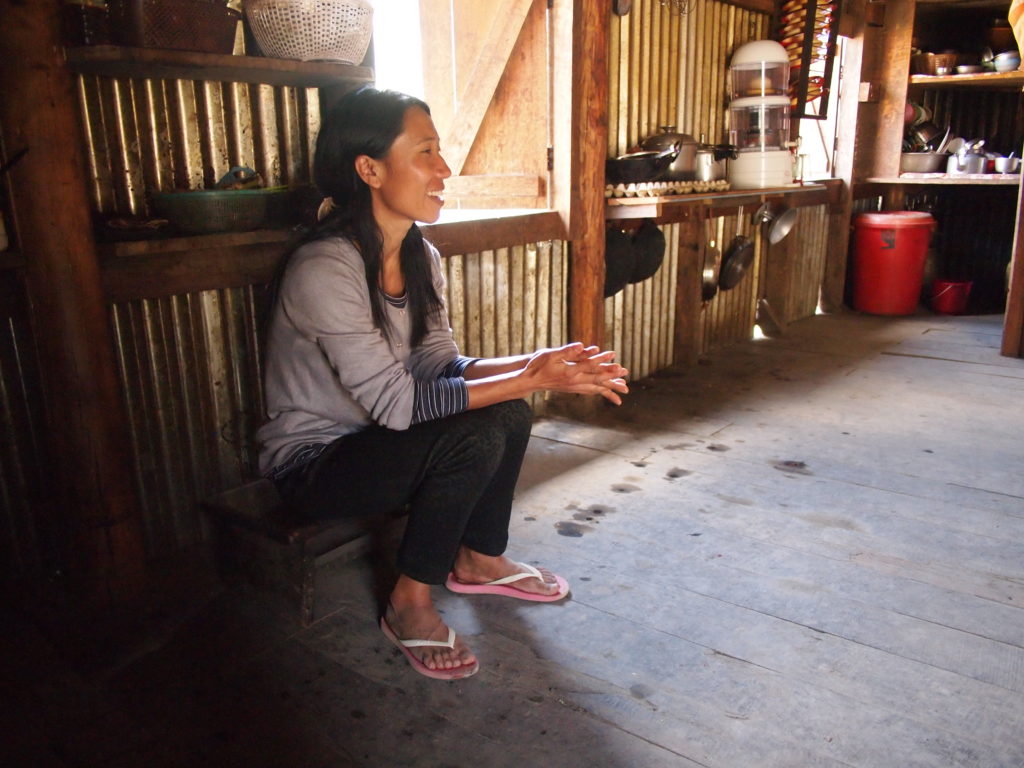
While many Indian women are married off long before they reach 30, at 34 Kevi feels no pressure from Naga society to find a mate. Her social epicentre is the Baptist church where the village congregate each weekend and unmarried men are few and far between. But she remains hopeful of finding a suitor, although how or when she’s not sure. With no mobile phone or internet access, even modern alternatives like internet dating are not an option.
Foolishly I’ve arranged a telephone appointment with Sydney the next morning, but thankfully Kevi advises that there’s one telephone in town. So just as the sun sets on the day we walk past barking dogs to reach the house of the Village Chairman. At the kitchen door we are greeted by a short but jolly looking woman, who beckons us inside and urges us to sit on the floor. In front of me is a scene so foreign from anything I’ve seen in India, it’s akin to stepping into a parallel universe.
Sitting by the open fire is a tall, strapping man, crouching down on a small stool with his long legs wrapped awkwardly underneath his torso. He smiles briefly and then swiftly shifts his attention back to an aromatic fish curry. Taking a small taste he purveys the flavour before sprinkling in a spoon of turmeric. He then starts peeling and chopping potatoes with military precision. A small kitten circles his feet as he surreptitiously lets a scrap fall to the floor. While he says nothing his mere presence commands attention.
His wife sits down to relax and chat while her husband feverishly works away at the evening meal. She talks about her day that was spent tending the fields and feeding livestock, doing “women’s work” she explains. Her son walks in, and she directs him to sit down and wait patiently while they watch her husband complete his duty. This house is clearly her domain and the men of the house fall into line.
The Chairman’s wife gives me permission to use their phone, so I return early the next morning just as she enters the kitchen to stoke the fire. Upon dialing Australia I receive an error message, this phone isn’t registered to make calls outside of India. The only link in this tiny village to the outside world is closed. Just as I put the phone down the Chairman walks into the kitchen and quietly begins preparing the morning meal.
While Dzuleke is sheltered, its seclusion is wrapped in the comfort of maternal warmth. Unfortunately the outside world is calling, and just a short drive down the dusty path out of this idyllic village, young children are playing with guns and the last frontier rears its wild head again.
I visited Nagaland with the help of Kipepeo. If you’d like to do a homestay in Dzuleke you can find out more here (but this is not a sponsored post, I just thought they were both great).
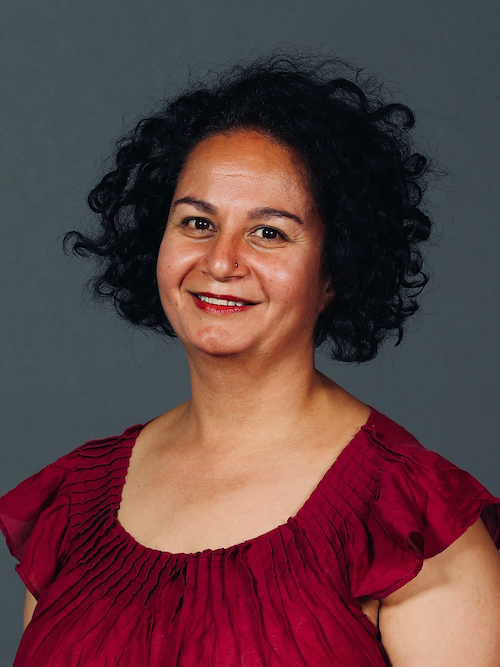
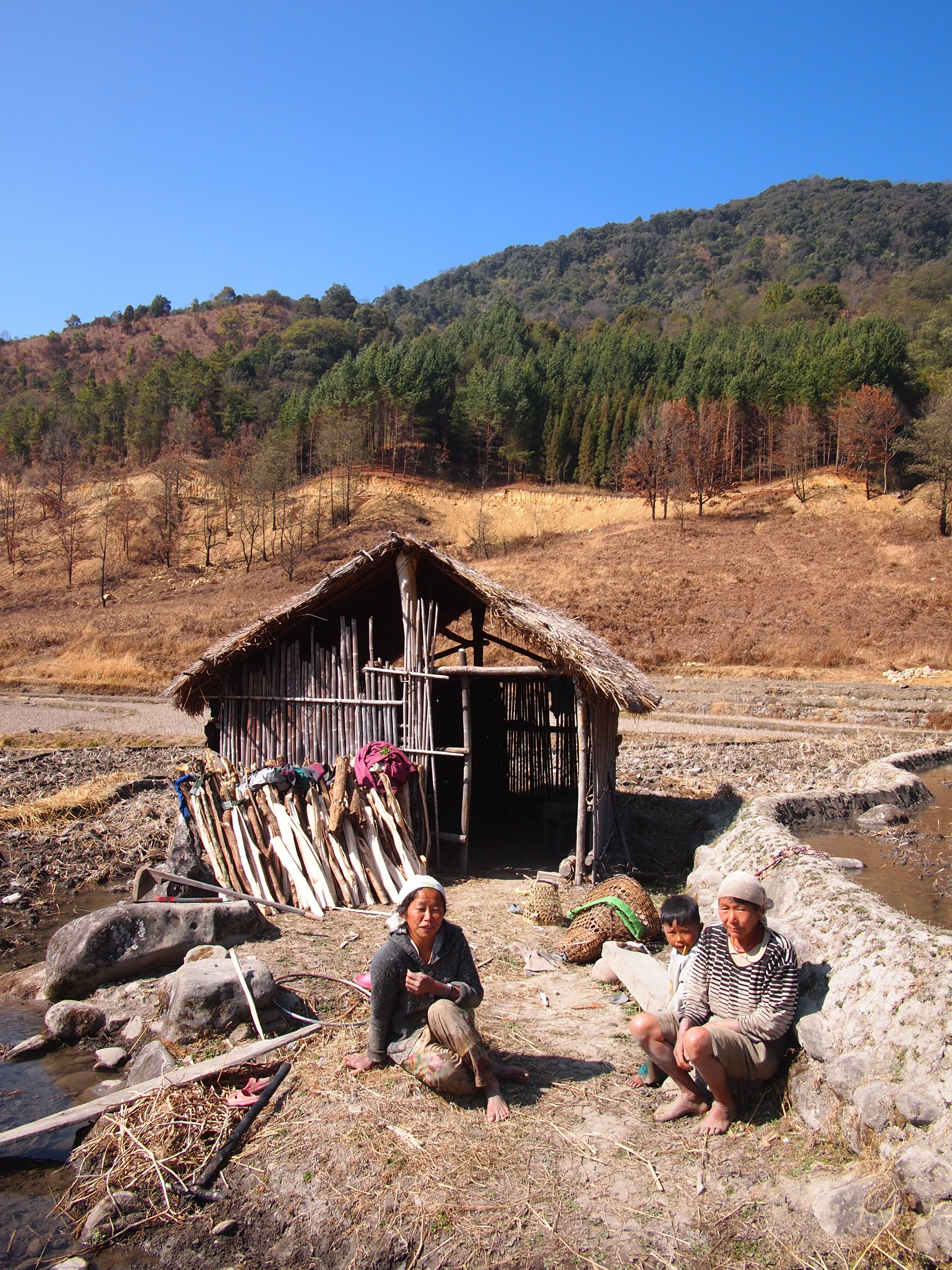
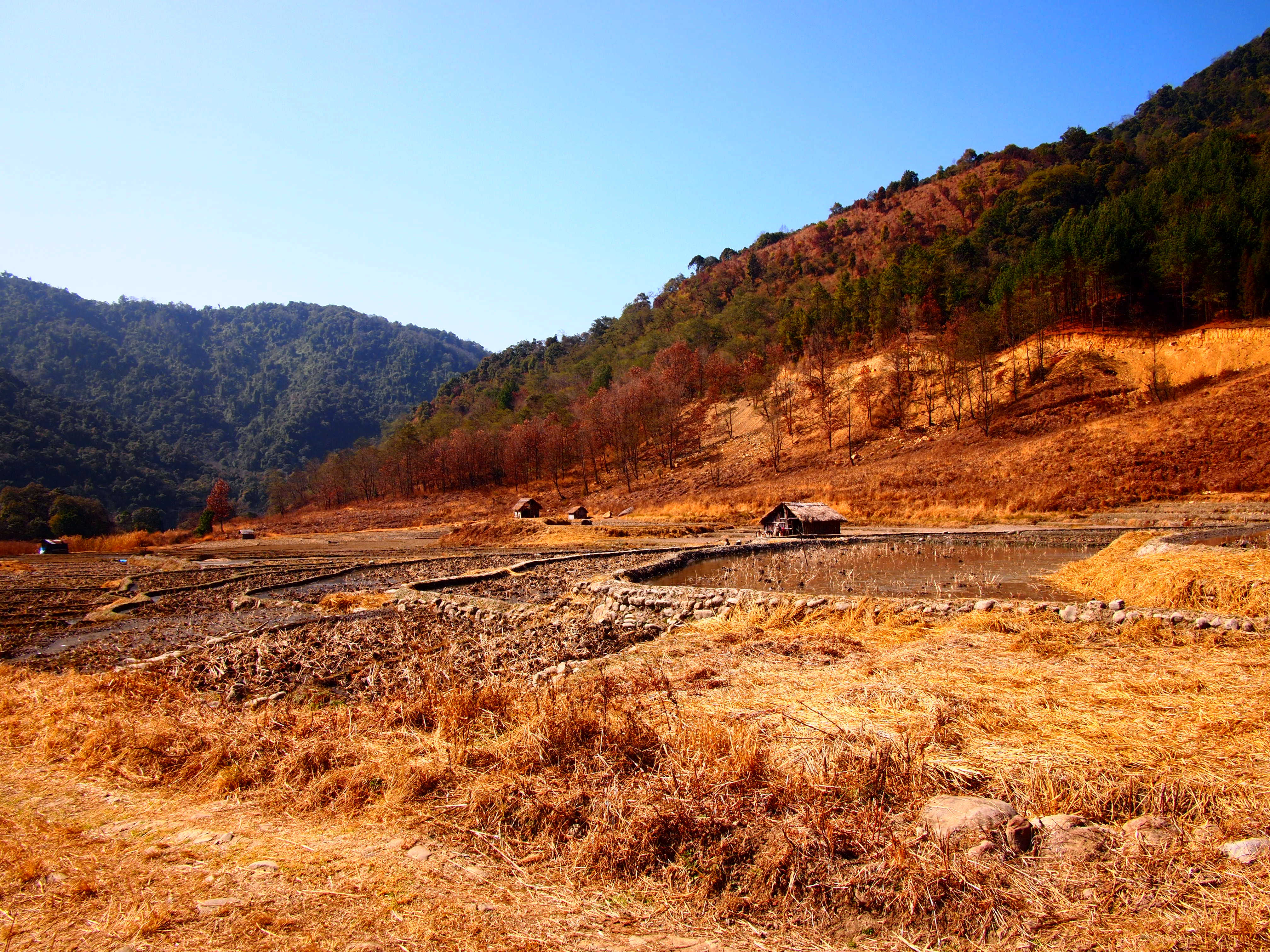
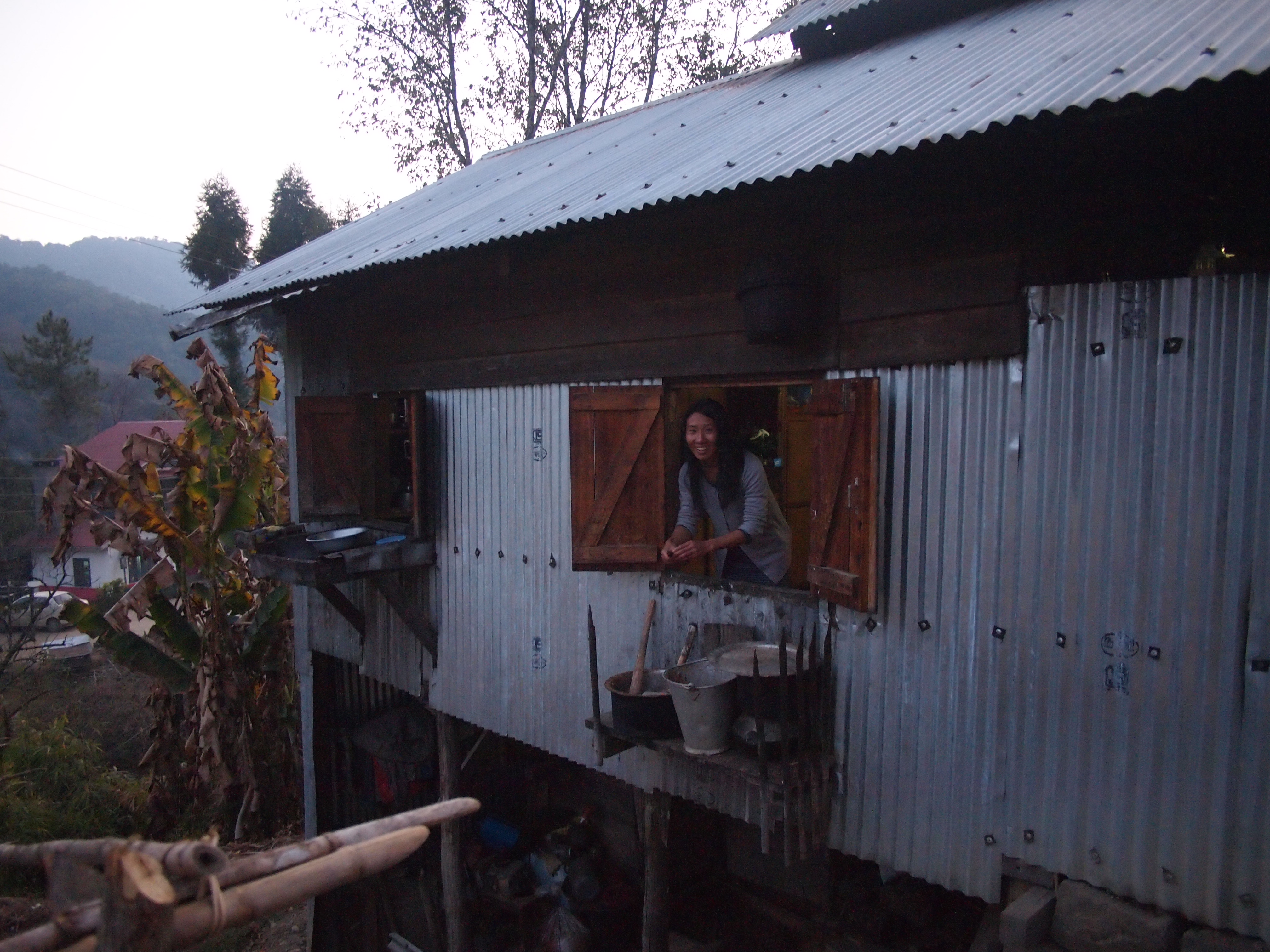
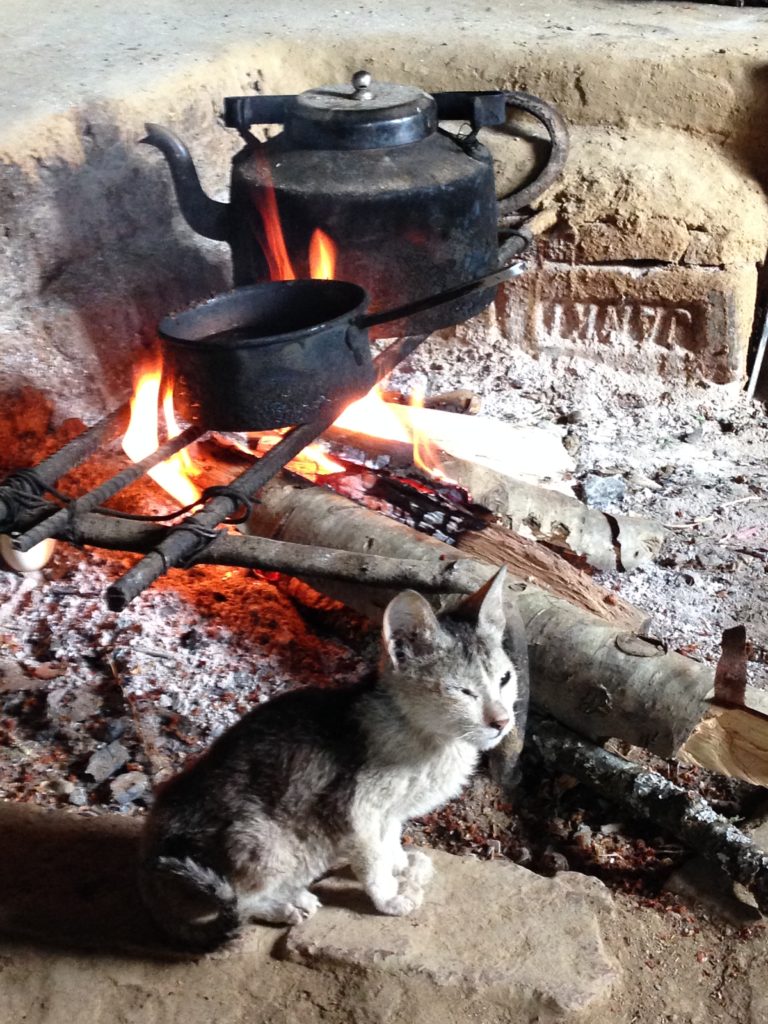
Leave a Reply